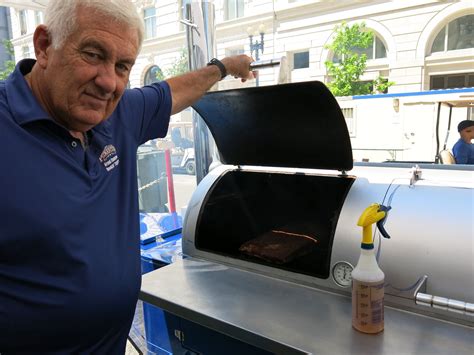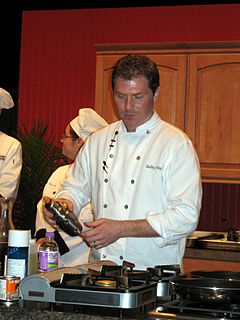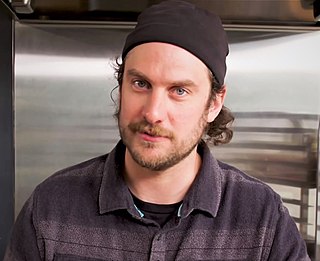A Quote by Johnny Trigg
A meat temperature gauge is a priceless tool. You can get a very inexpensive one at most hardware or sporting goods stores, which will easily help you determine the temperature of your meat so it is not over or undercooked. Pork is normally done at about 160, internal temperature. Steaks are cooked medium rare from 145 to 150. 165, medium. Well done is about 175, internal temperature.
Related Quotes
In the APS (American Physical Society) it is ok to discuss whether the mass of the proton changes over time and how a multi-universe behaves, but the evidence of global warming is incontrovertible? The claim (how can you measure the average temperature of the whole earth for a whole year?) is that the temperature has changed from ~288.0 to ~288.8 degree Kelvin in about 150 years, which (if true) means to me is that the temperature has been amazingly stable, and both human health and happiness have definitely improved in this 'warming' period.'
If you're new to the smoking game, the first dish I suggest you smoke would be a pork shoulder. Unlike brisket or ribs, the meat is intrinsically tender. It's very well marbled both on the outside of the shoulder and throughout the meat, so even if you overcook it, even if you get a spike in temperature, it's very hard to screw up. It usually comes out moist, crispy and delicious no matter what you do to it.
Nature prefers the more probable states to the less probable because in nature processes take place in the direction of greater probability. Heat goes from a body at higher temperature to a body at lower temperature because the state of equal temperature distribution is more probable than a state of unequal temperature distribution.
In the 1980s a small group of individuals became concerned about the Earth's temperature and what it might do in the future. I hesitate to call them scientists because they have abandoned their scientific principals by which their guess about temperature increases and the cause could achieve scientific acceptance or rejection.
The impact of the Kyoto Protocol on global temperature is quite modest, especially for the first century. The reduction in global mean temperature in the Annex I case relative to the reference in 2100 is 0.13ºC; this compares with a difference of 0.17ºC from the Kyoto Protocol calculated by Wigley. The temperature reduction in the optimal run is essentially the same as the Kyoto runs by the 22nd century.
The mathematical thermology created by Fourier may tempt us to hope that, as he has estimated the temperature of the space in which we move, me may in time ascertain the mean temperature of the heavenly bodies: but I regard this order of facts as for ever excluded from our recognition. We can never learn their internal constitution, nor, in regard to some of them, how heat is absorbed by their atmosphere. We may therefore define Astronomy as the science by which we discover the laws of the geometrical and mechanical phenomena presented by the heavenly bodies.

































